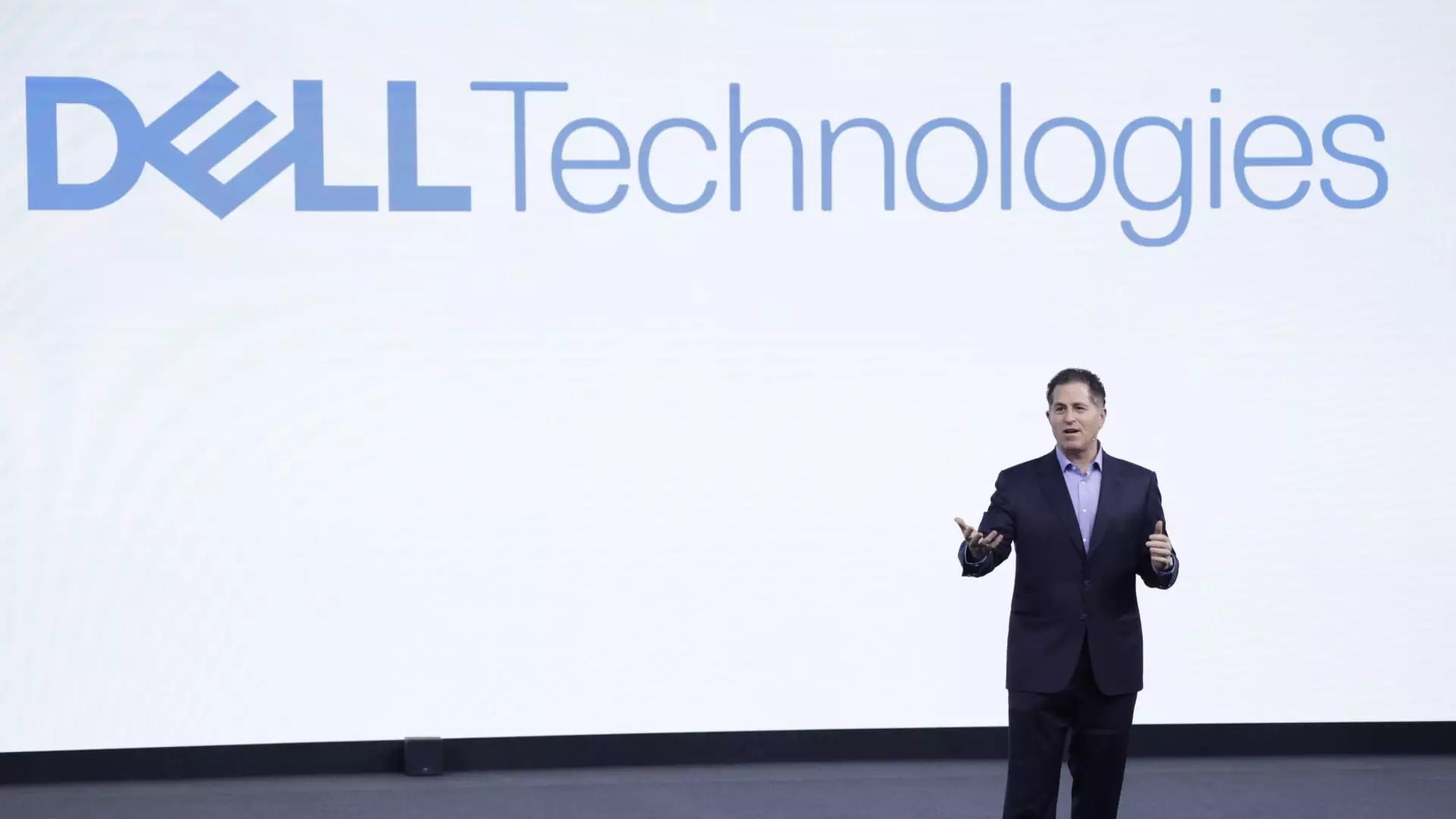The stock market saw a significant drop in Dell Technologies’ shares, by more than 16%, following the company’s disappointing lower-than-expected artificial intelligence server backlog and projected margin decline. Despite beating analysts’ first-quarter results expectations and providing optimistic guidance, investors were not impressed.
Dell reported a first-quarter revenue of $22.24 billion, surpassing the analysts’ estimated $21.64 billion mark, according to LSEG. However, for the second quarter, Dell predicted earnings of $1.65 per share and sales ranging from $23.5 billion to $24.5 billion, falling short of the analysts’ anticipated $23.35 billion. The company also forecasted full fiscal year sales between $93.5 billion and $97.5 billion.
Analysts from Bernstein highlighted concerns regarding Dell’s compressed operating margins and stagnant operating profits in its Infrastructure Solutions Group, despite additional AI server revenues of $1.7 billion. The fear that Dell’s AI servers are sold at minimal margins resurfaced, implying that their AI initiatives are struggling to translate into profits.
Bank of America’s Perspective
Bank of America analysts expressed confidence in Dell’s strong quarter performance, maintaining a buy rating on the stock. They attributed the after-hours decline to the lower-than-expected $3.8 billion AI server backlog and the projected margin decrease for the fiscal year. Despite these challenges, Bank of America sees potential for Dell to capitalize on the growing AI market in the future.
JPMorgan analysts recognized the investors’ reaction to Dell’s report but believed that the concerns were exaggerated. They emphasized the company’s potential for revenue and earnings expansion beyond its medium-term target. JPMorgan analysts anticipated a recovery in traditional infrastructure demand and accelerating trends in AI, leading to a favorable buying opportunity for investors.
Dell Technologies’ stock decline serves as a cautionary tale for companies striving to balance technological innovation with financial profitability. While the market may have reacted negatively to Dell’s recent performance, the company’s long-term prospects in the AI sector provide hope for a potential rebound. Investors must remain vigilant in monitoring Dell’s execution and margin improvement promises throughout the year.


Leave a Reply